Megiddo
Megiddo is a hill in the Valley of Jezreel that holds the layered ruins of ancient cities dating as far back as 7,000 BCE. The location at the mouth of the Nahal Iron Pass permitted control of access to the road linking Egypt with Mesopotamia, and made Megiddo militarily and economically strategic. The city appears numerous times in the Christian Old Testament in Joshua, Judges, 1/2 Kings, 1/2 Chronicles and Zechariah. Other historic references to the city are included in Assyrian inscriptions and the victory stela of Pharaoh Thutmose III. A large gate is attributed to King Solomon and remains of stables there are attributed to King Ahab.
Unfortunately, because of its age and state of ruin, accepting the history of the site requires a leap of faith in archeology. Lacking the majesty (reconstructed or otherwise) of later Roman ruins, imagination is needed to visualize what stood on what looks to the untrained eye like piles of vaguely organized rock.
The highlight of the site is an ancient water tunnel that was used to carry water from a spring outside the city walls. However, a couple of folks on the tour (including my mom) were in no shape to descend the shaft, so I was tasked with escorting them back to the bus while the rest of the group explored the tunnel.
For apocalyptically minded Christians, Megiddo is mentioned as Armageddon (possibly from the Hebrew har megiddo or mountain of Megiddo) in Revelations 16:16 where the Messiah returns to defeat the Antichrist. Given the violent history and former importance of the city, it is understandable why the author of Revelations would see this as an excellent setting for the last great battle. However, it's current state and comparative unimportance may indicate that setting as more metaphorical than literal - at least for now. On the other hand, its proximity to the fearsome Israel security wall and hostile Arab population does give one pause.
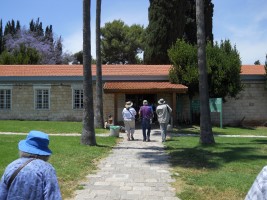
Megiddo entrance
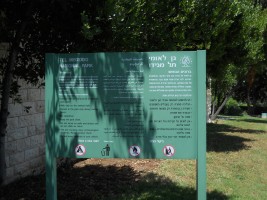
Entrance sign
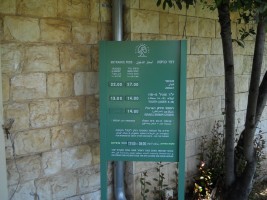
Entrance prices
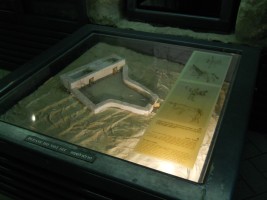
Site model
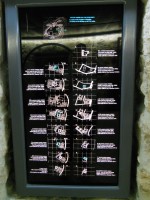
Evolution of site
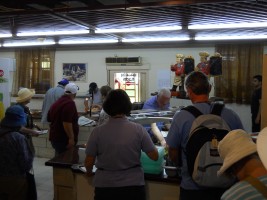
Lunch

Lunch

Lunch

Purple tree
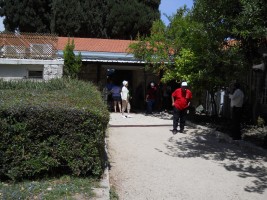
Visitor center

Pomegranite flowers
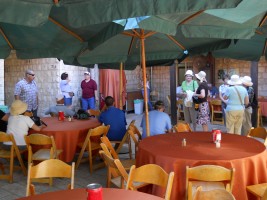
Waiting
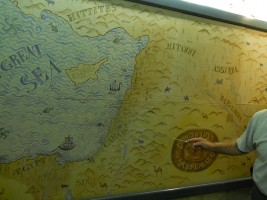
Location map
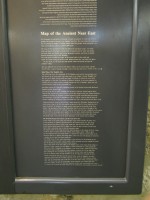
Location map
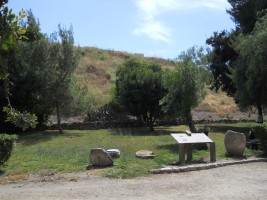
Megiddo
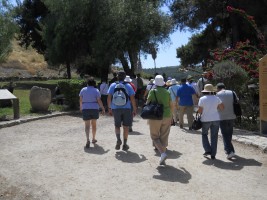
Headed up the hill
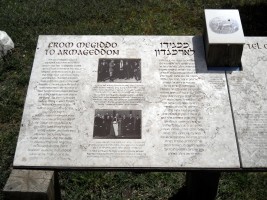
Armageddon
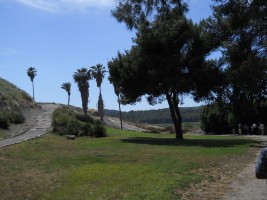
The path up
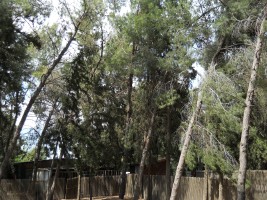
Dying pines
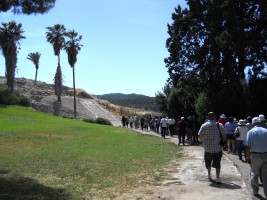
The path up
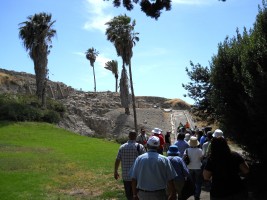
The path up
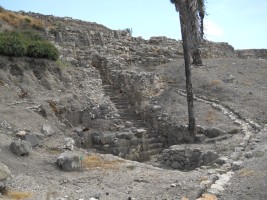
Megiddo
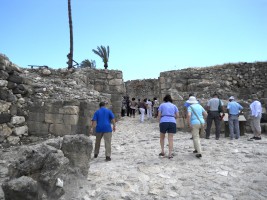
Megiddo
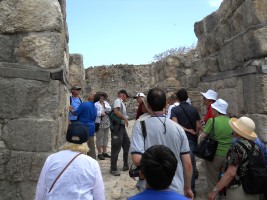
Megiddo
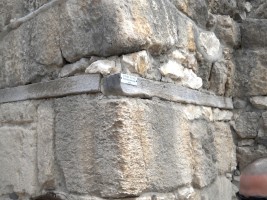
Restoration level marker
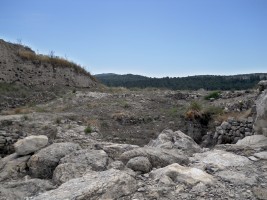
Megiddo
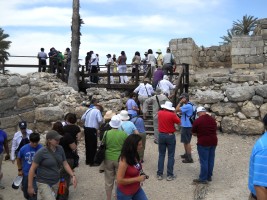
Megiddo
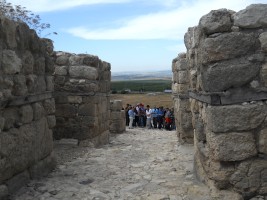
Megiddo
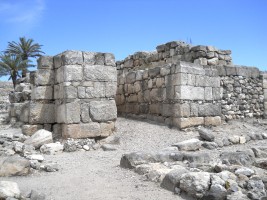
Megiddo
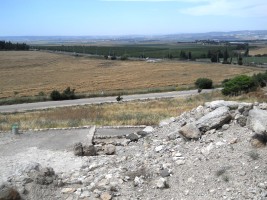
Megiddo
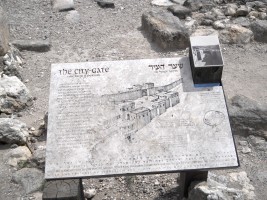
City gate diagram
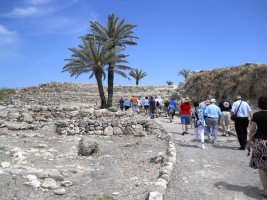
Megiddo
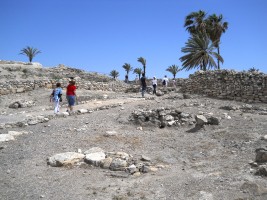
Megiddo
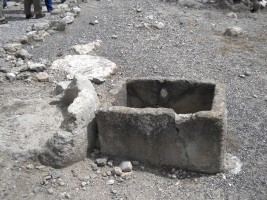
Megiddo
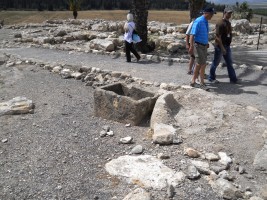
Megiddo
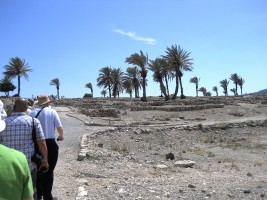
Megiddo
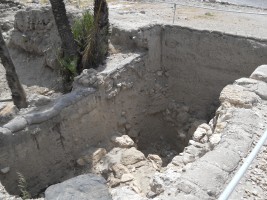
Megiddo
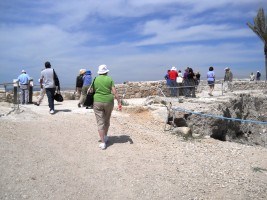
Megiddo
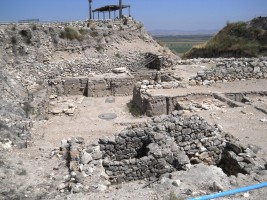
Megiddo
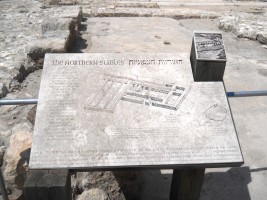
Northern Stables
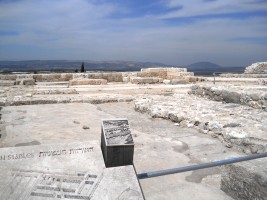
Northern Stables
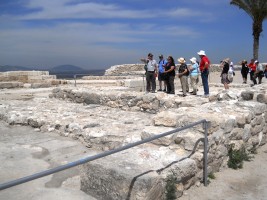
Megiddo
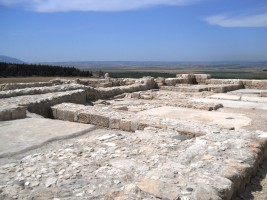
Megiddo
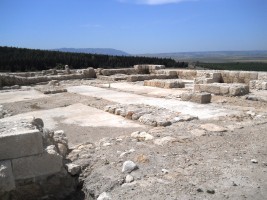
Megiddo
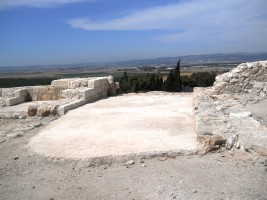
Megiddo
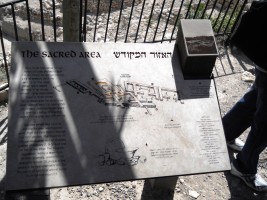
Megiddo
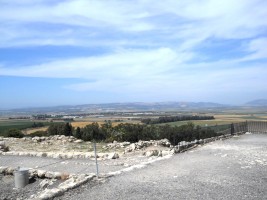
Megiddo
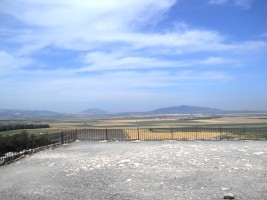
Megiddo
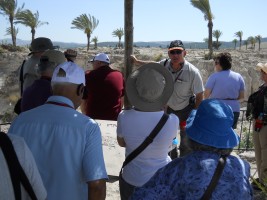
Megiddo
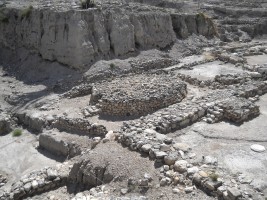
Megiddo
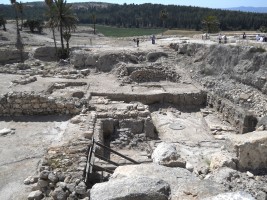
Megiddo
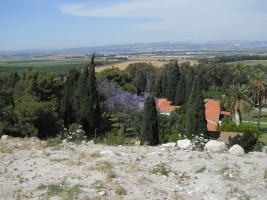
Megiddo
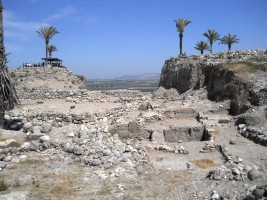
Megiddo
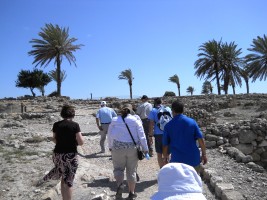
Megiddo
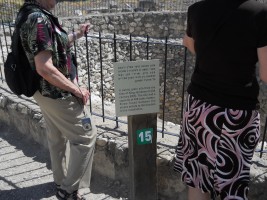
Grain silo
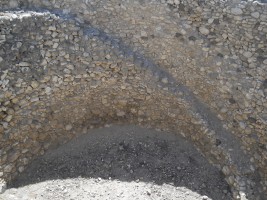
Grain silo
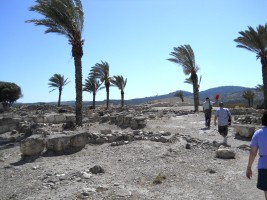
Megiddo
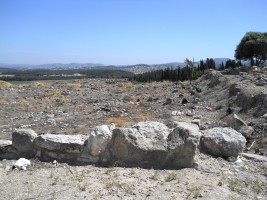
Megiddo
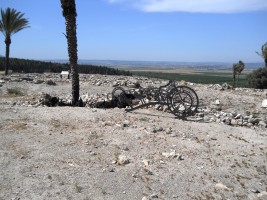
Megiddo
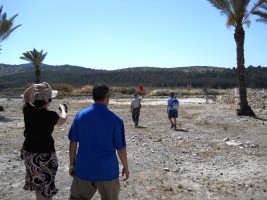
Megiddo
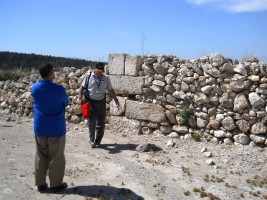
Megiddo
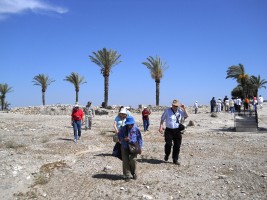
Megiddo
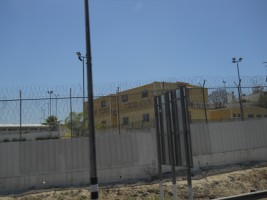
Security fence
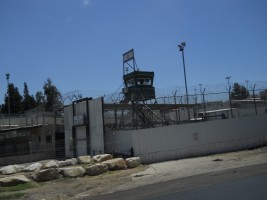
Checkpoint